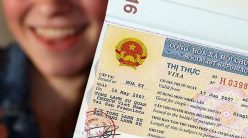According to the provisions of civil procedure law, the Court can only accept to settle civil cases when there is a petition from the subjects. However, when filing a lawsuit, what conditions must be complied with in order to initiate a civil lawsuit in order for the petition to be accepted by the Court?
First , the subject must have the right to sue.
According to Article 186 of the Civil Procedure Code 2015 stipulating the right to initiate lawsuits: “ Agencies, organizations and individuals have the right to initiate lawsuits by themselves or through their lawful representatives (hereinafter collectively referred to as is the petitioner) at a competent court to request protection of his/her legitimate rights and interests .”
And Article 187 of the 2015 Civil Procedure Code stipulates:
“ 1. The state management agency in charge of the family, the state management agency in charge of children, the Vietnam Women’s Union, within the ambit of their tasks and powers, have the right to initiate a lawsuit on marriage and family in accordance with the Law on Marriage and Family.
- The representative organization of the labor collective has the right to initiate a labor lawsuit in case it is necessary to protect the legitimate rights and interests of the employee collective or when authorized by the employee in accordance with the law. .
- Social organizations participating in consumer protection have the right to represent consumers to initiate lawsuits to protect consumers’ interests or to initiate lawsuits themselves for the public interest in accordance with the Law on Protection of Consumer Rights. consumer benefit.
- Agencies and organizations, within the ambit of their tasks and powers, have the right to initiate civil lawsuits to request the Courts to protect public interests and the interests of the State in their fields of responsibility or under their respective jurisdictions. provisions of law.
- Individuals have the right to initiate marriage and family lawsuits to protect the lawful rights and interests of others in accordance with the Law on Marriage and Family .”
Compared with the Civil Procedure Code of 2004, the current Civil Procedure Code has expanded on the subject who has the right to initiate a lawsuit to protect the legitimate rights and interests of others, the public interest and the interests of the public. gorvernment’s. This expansion is to ensure the legitimate rights and interests of subjects who are unable to protect their own interests.
Accordingly, subjects with the right to initiate civil lawsuits include individuals, agencies, representative organizations, social organizations, etc. (Article 187 of the 2015 Civil Procedure Code) who satisfy the conditions set forth in Article 187 of the 2015 Civil Procedure Code. Legal provisions.
Individuals who initiate lawsuits must have civil procedure act capacity. For agencies and organizations, the legal representative to participate in the proceedings (Clause 7, Article 69 of the Civil Procedure Code 2015) and the representative must have full civil procedure act capacity.
In addition, the subject of the lawsuit is the one whose legitimate rights and interests have been infringed. However, there are also some cases where the petitioner is the legal representative of the person whose rights and interests have been infringed or the petitioner requests the Court to protect the legitimate rights and interests of others. , public interests and the interests of the State according to the provisions of Article 187 of the Civil Procedure Code 2015.
Second , the Court only accepts civil cases for disputes within its jurisdiction. Specifically, the lawsuit lawsuit must fall under the jurisdiction of the Court as prescribed in Articles 26, 28, 30 and 32 of the Civil Procedure Code 2015 (jurisdiction according to the case); The case must be instituted at the right level of the Court having jurisdiction under Article 35, Article 36, Article 37 and Article 38 of the 2015 Civil Procedure Code (authority by level); And must be in accordance with the territorial jurisdiction (Article 39); In addition, the plaintiff can choose the Court to settle (Article 40).
For disputes in civil cases that are required by law to require other agencies to settle first, the plaintiffs may only initiate lawsuits before the courts when the relevant agencies have settled them but they cannot agree to the settlement of that agency.
Thirdly , in order to avoid the situation that an incident that many agencies resolve prolongs the time to participate in the proceedings of the litigants as well as the litigants taking advantage to prolong the execution time of the decision or judgment. Therefore, if a civil case has been settled by a legally effective judgment or decision of a Court or a competent authority, the litigant may not re-initiate that case. . However, there is an exception, which means that the involved parties have the right to re-file a lawsuit in the cases specified at point c, Clause 1, Article 192 of the Civil Procedure Code 2015: the Court’s judgment or decision rejects the application. divorce; Request for change of child support, change of support level, compensation level; …
Fourth , the civil case still has the statute of limitations to initiate a lawsuit.
The statute of limitations for initiating lawsuits for civil cases is stipulated in the general law as the Civil Code 2015 (Civil Code provisions on the statute of limitations applied in civil procedures under Article 185 of the Civil Procedure Code). civil litigation in 2015) and specific provisions in specialized laws such as marriage and family law, labor law, etc. If that time limit expires, the subject loses the right to initiate a lawsuit unless otherwise provided for by law. . The regulation of the time limit for initiating a lawsuit is to ensure that the legitimate rights and interests of individuals and legal entities are not infringed and at the same time to ensure that the case settlement process is prompt, correct, and secure. ensure the smooth implementation of other civil proceedings.
For support and advice on Business, Investment, Intellectual Property, etc., in the best way, please contact us with the following information:
DHP LAW
Address: L4- 09.OT06 Landmark 4 Building Vinhomes Central Park, 720A Dien Bien Phu, Ward 22, Binh Thanh District, Ho Chi Minh City








